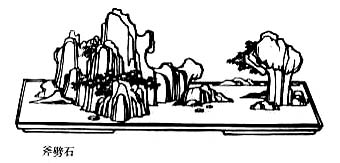2010 (840)
2011 (629)
2012 (247)
2013 (653)
2014 (1463)
2015 (155)
2016 (265)
2017 (251)

蒙 is one of the 64 hexagram in I-Ching, which I have learned since a decade ago, and still need more study. The I-Ching equals to a key to success, wealth, even life or death.
I had a gain in the market for I am not a layman for it.
I was 蒙ed by a scam, lost money for I stopped to study it.
Mêng / Youthful Folly
Above KÊN KEEPING STILL, MOUNTAIN
Below K'AN THE ABYSMAL, WATER
In this hexagram we are reminded of youth and folly in two different ways. The image of the upper trigram, Kên, is the mountain, that of the lower, K'an, is water; the spring rising at the foot of the mountain is the image of inexperienced youth. Keeping still is the attribute of the upper trigram; that of the lower is the abyss, danger. Stopping in perplexity on the brink of a dangerous abyss is a symbol of the folly of youth. However, the two trigrams also show the way of overcoming the follies of youth. Water is something that of necessity flows on. When the spring gushes forth, it does not know at first where it will go. But its steady flow fills up the deep place blocking its progress, and success is attained.
The Judgment
YOUTHFUL FOLLY has success.
It is not I who seek the young fool;
The young fool seeks me.
At the first oracle I inform him.
If he asks two or three times, it is importunity.
If he importunes, I give him no information.
Perseverance furthers.

mēng
【形】
(字源見該字méng聲)昏迷,暫時失去知覺的〖unconscious;senseless〗。如:頭發蒙;一下摔蒙了;被一猛拳打蒙了
蒙
mēng
【動】
欺騙〖deceive;hoodwink〗。
蒙騙
mēngpiàn
〖cheat;deceive;delude;dupe;hoodwink〗欺騙或哄騙
蒙頭轉向
mēngtóu-zhuànxiàng
〖loseone'sbearings;beutterlyconfused〗頭腦糊塗,暈頭轉向的狀態
蒙
méng
【名】
(形聲。從艸,冡(méng)聲。本義:草名)
草名。即菟絲〖dodder〗。
蒙
méng
【動】
遮蔽;覆蓋〖cover〗
欺騙,隱瞞〖cheat〗
承繼,繼承〖inherit;succeed〗
蒙受〖sufferfrom〗
承蒙〖receive〗
蒙
méng
【形】
迷茫,廣闊而看不清。彌漫籠罩〖vastandhazy〗。如:蒙晦(迷茫昏暗貌);蒙漠(迷茫昏暗);蒙翳(彌漫)
幼稚,暗昧不明〖ignorant;naive;uncultured〗
匪我求童蒙,童蒙求我。——《易·蒙》
陰暗〖dusky;dim〗














